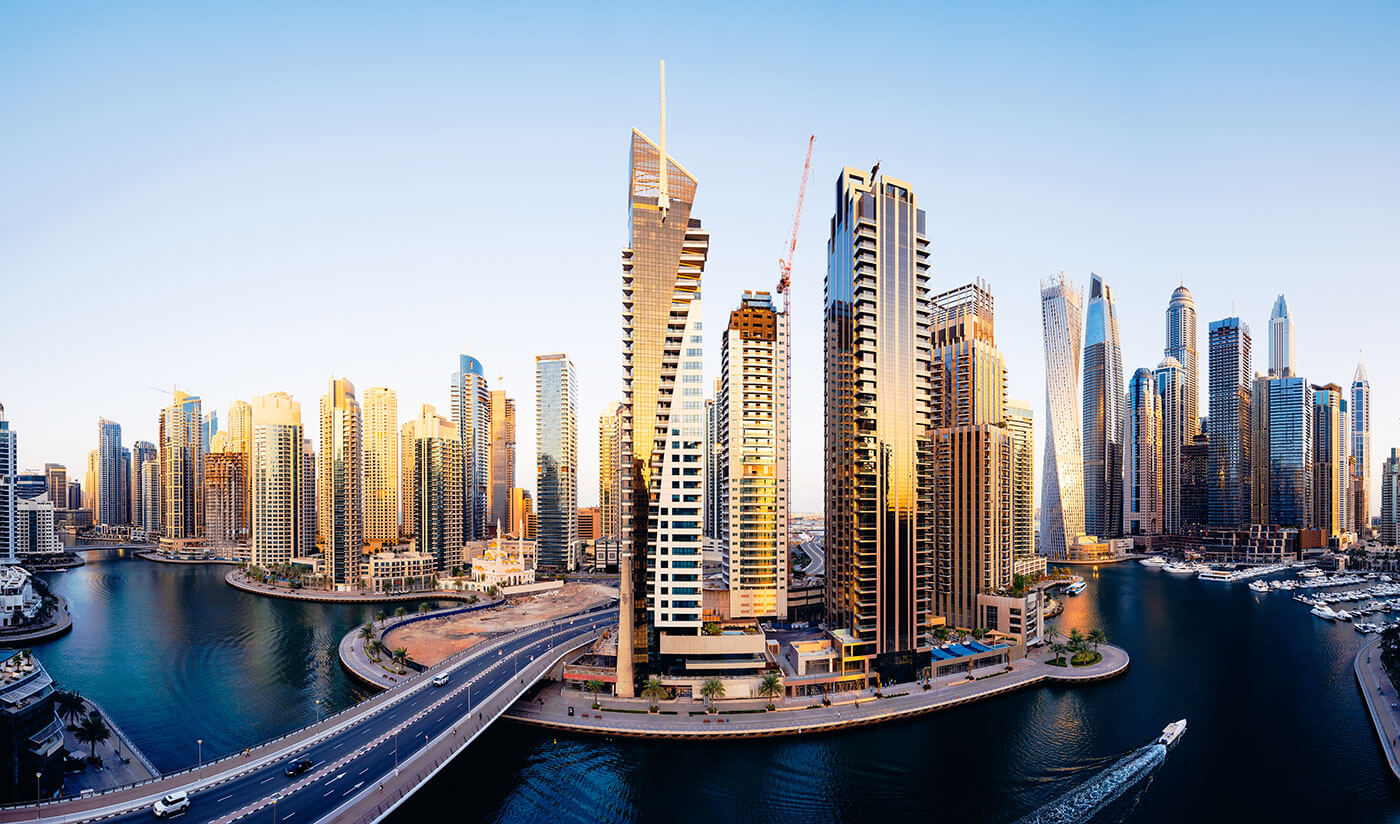
Intellectual Property considerations when expanding to the United Arab Emirates
When entering a new market, it is vital to carefully analyze all aspects of Intellectual Property (IP) that may be involved. The United Arab Emirates (UAE) continues to be an attractive market for businesses to expand to as it acts as a gateway to the broader Middle East and remains the pivotal hub connecting East and West. Currently, this standing is all the more boosted by the ongoing EXPO 2020, which is drawing in millions of visitors, investors and companies to the country.
This article shall look at the key considerations for one's IP when making the move of entering the UAE market, from the preparatory research to the registration and enforcement of IP rights (IPRs).
Assessment of existing IPRs in the UAE and the risk they pose
Before entering the market, it is advisable to direct an IP expert to conduct an official search of the local trademark office database. Virtually all recently filed and registered trademarks can be detected, allowing the expert to advise on the level of risk that any of these marks may pose to the registration and use of the intended trademark. If identical or similar marks are found, further intelligence needs to be gathered to define all defense options. For instance, if the owner of a conflicting mark is holding the trademark illegitimately, this must be actively contested. On the other hand, in some cases, coexistence agreements can be negotiated, or a variation of the proposed mark can be enough to overcome the obstacle.
The technical features of your product can be checked through a patent search, which is usually available in a few weeks' time, including a patent expert's advice. The depth of these searches varies from standard to highly complex, with consequent differences in fees. This investigation shows if and how the product may need to be adapted (employing a so-called "workaround") or whether a negotiation with the prior patent owner is advisable.
Trade names can be cleared ahead as well. However, this is complicated by the fact that each of the almost 40 local UAE registers between the seven Emirati mainland Chambers of Commerce (rectius Departments of Economic Development) and the Free Zones holds its own database.

Physical market surveys are possible but commonly not carried out in the UAE if no potential infringement is already expected. In the case of anticipated conflicts, further investigations are advisable on the duration and extent of any such adverse use. Additionally, the possible registration of related IPRs, trade names and domain names should be cleared as well as the names of the owners. By cross-checking any potential international exposure of the opposing company / products, the overall dimension of the conflict can be assessed and a strategy conceived from both legal and commercial points of view.
Registration of IPRs
As soon as the decision to begin commercial activities in the UAE is made, it is imperative to register one's IPRs without delay. This goes particularly for trademarks, as mere use does not provide a solid basis for trademark protection in the UAE. The country follows the first-to-file principle, meaning the one who first files the trademark application is presumed to be the rightful owner. On the other hand, the UAE does not demand proof of use of the mark as a registration requirement and it only has to be used within five years after registration.
As the official trademark registration fees are comparatively high in the UAE and the country requires a separate application for each class of goods or services - which will supposedly be changed in 2022 when multiclass filing is to be adopted - it is financially wise to make an assessment and selection of the trademarks that one really wants to have protected in the UAE.
Marks can be filed in Latin or Arabic scripts, but it is advisable to register a combination of both. There are usually several possible transliterations for a given mark and, to prevent third parties from obtaining the registration of a slightly different permutation of one's mark, it is prudent to have the dual version registered in one's name. Compared to many of the large markets worldwide, more registration formalities are required, incurring additional costs. To wit, a foreign applicant must appoint a local trademark agent via a notarized power of attorney, legalized by the UAE embassy in the applicant's home country and then super-legalized by the Ministry of Foreign Affairs in the UAE.
An alternative to this procedure shall soon become available as the UAE has announced to join the Madrid System of the World Intellectual Property Organization (WIPO), effective December 28, 2021. This will enable foreign applicants who are domiciled, have an industrial or commercial establishment in or are a citizen of one of the Madrid Member States to extend their basic home registration to the UAE without the need for the above-mentioned local agent unless a refusal or opposition is raised.

As for patents, the UAE recently announced the introduction of a grace period for applications published before filing. It will, however, be limited to the UAE, so applicants are well-advised to continue securing their inventions via the national or Patent Cooperation Treaty (PCT) routes before going public.
Gulf Cooperation Council (GCC) patent applications remain suspended and are not expected to become available again. Furthermore, a common feature of foreign businesses operating in the UAE market is a relationship with local partners. Rather than opening their own establishment or branch, companies often opt to collaborate with agents in the country. Importantly, this arrangement carries with it specific issues in regard to IPRs. The most pressing task in such a partnership is to register your IPRs in your own name. Leaving this to the local agent / importer / distributor jeopardizes your business should the relationship break off. Although recovering your IP assets is generally possible in the end, it may entail an expensive, years-long court action.
Post-registration, use and enforcement of IPRs
Once a trademark is registered, one needs to make sure to actually use it as continued non-use for more than five years makes the mark vulnerable to cancellation actions brought by third parties. Accordingly, the use of your trademark should be well documented by storing dated copies of all commercial communications, including imports, sales, advertising and media campaigns. This will generate watertight legal proof in case of any disputes about the ownership and validity of your trademarks.
Another, albeit extremely rare way that a trademark becomes liable for cancellation, is if it has become the common name for the goods or services it covers ("genericide"). To prevent this, the mark should be used properly as a trademark and not as a general word for the goods or services by the owner and their partners. It is also recommended to use the ® symbol with registered marks and initiate marketing campaigns to raise awareness if one fears the genericide of one's trademarks.
Moreover, the use of IPRs through third parties (agents, importers, distributors) needs to be done via a written contract, unambiguously setting out their ownership. The local distributor may be given a license to use the IPRs for an agreed period of time in the UAE. The use and all goodwill must be attributable back to the owner.

It should additionally be ensured that commercial agency, distribution or license agreements are being registered with the authorities to make them immediately enforceable. This registration will also legally help to act against any unwanted parallel or grey imports as it will establish proof of exclusivity. Similarly, care should be taken that non-disclosure agreements (NDAs) are in place with (prospective) business partners to safeguard confidential information concerning IPRs. This is of particular importance in relation to patents, as premature disclosure can result in failure to meet the novelty requirement for obtaining a patent.
As with license agreements, all changes in IPR ownership – such as a change in the address or name of the owner and the assignment of IPRs – should be recorded with the IP Office without delay for clarity and so as not to interrupt the possibility of immediate enforcement actions. In addition, it is strongly recommended to instruct a trademark watch service to monitor new filings in the country so that one can oppose infringing trademark applications in good time.
Last but not least, an effective anti-counterfeiting strategy is essential. In five of the seven Emirates, brand owners can record their registered trademarks with the customs authorities to screen incoming shipments for products that infringe their trademark rights. For example, in the Emirate of Dubai, trademarks can also be recorded with the Department of Economic Development, who will then monitor the Dubai market for any items in violation. If one does encounter infringements, it is of great importance to react swiftly – on the one hand, to avoid further damages, and on the other hand, because prolonged inaction might be considered acquiescence, which could hinder the enforcement of one's rights later on.
Conclusion
As we have seen, there are many specific IP challenges when entering the attractive UAE market. Still, with the right strategy from the get-go and robust protection mechanisms in place, IP owners can be confident that their rights are safe.
At Dennemeyer & Associates, we are committed to securing and ensuring the highest standard of protection for all of our clients' IP worldwide. Our dedicated team in the UAE is eager to assist you at every step toward IPR filing and prosecution in the country and wider region.
Filed in

What are the three pillars of IP innovation, and how can C-suite members maximize the value of assets that are, by definition, less than concrete?



